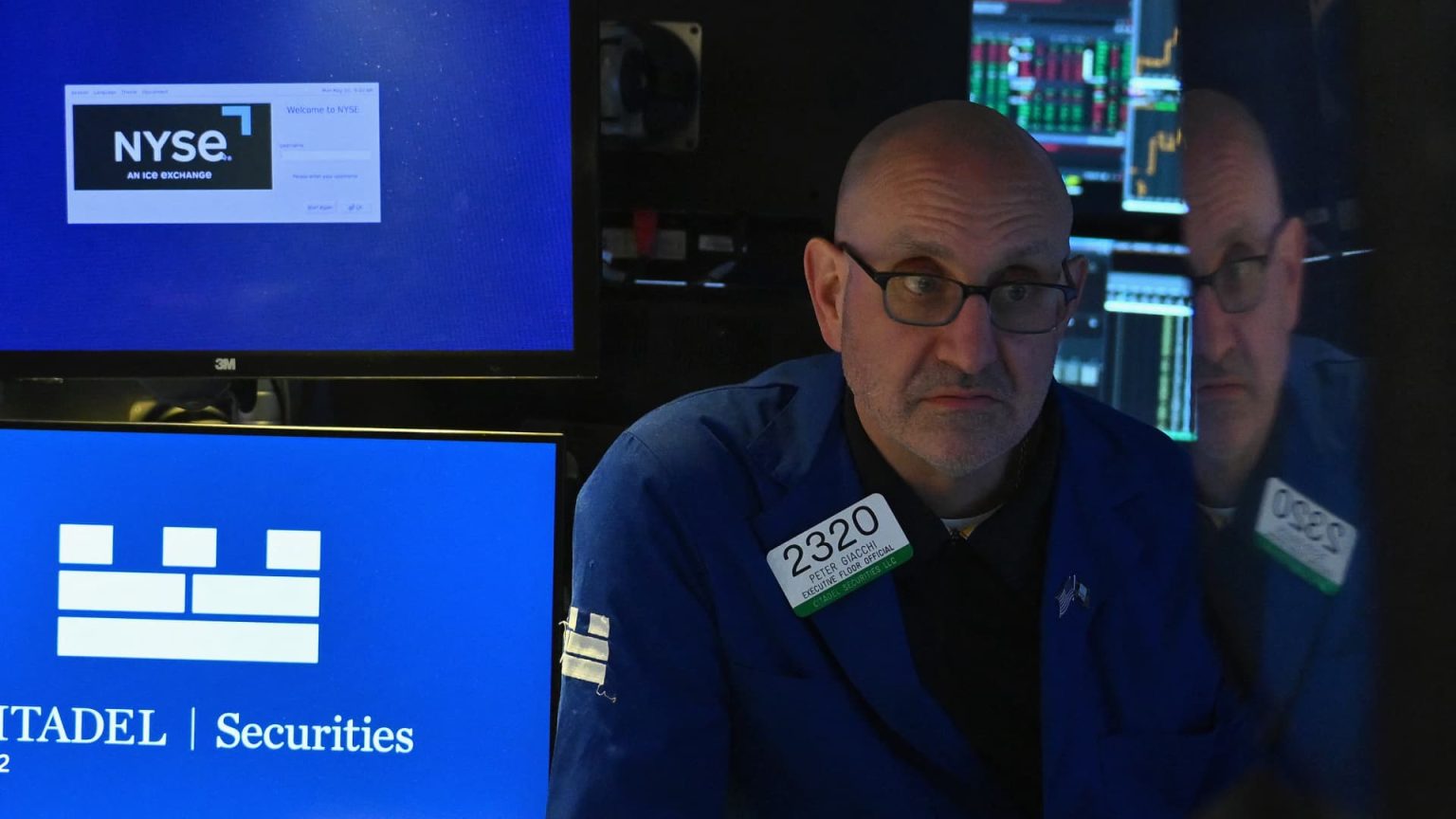A trader on the floor at the New York Stock Exchange (NYSE) in New York during the opening bell on May 22, 2023.
Angela Weiss | Afp | Getty Images
This report is from today’s CNBC Daily Open, our new, international markets newsletter. CNBC Daily Open brings investors up to speed on everything they need to know, no matter where they are. Like what you see? You can subscribe here.
The S&P 500 broke 4,200 last week, its highest since last August. But it could be a case of panic buying and excessive optimism.
What you need to know today
- U.S. President Joe Biden met House Speaker Kevin McCarthy Monday evening to discuss the debt ceiling. No deal emerged — but McCarthy described the meeting as “productive,” and Biden expressed cautious optimism. Treasury Secretary Yellen warned in a new letter it was “highly likely” the U.S. could default on its debt by June 1. The word “highly” didn’t appear in her last letter.
- JPMorgan Chase held its investor day Monday. At the event, we learned the bank aims to generate $84 billion in net interest income this year, $3 billion higher than its April forecast. CEO Jamie Dimon warned that souring commercial real estate loans could trigger another problem for banks, and that everyone should prepare for even higher interest rates.
- Pasta prices in Italy jumped 16.5% in April — double the increase in consumer prices, which rose 8.1% year on year in the same month. The situation alarmed the pasta-loving nation so much that the country’s Minister of Economic Development Adolfo Urso convened an emergency meeting, while others called for a “pasta strike.”
- PRO Regional bank stocks are being snapped up by insiders — the people who work within the banks themselves, according to a Raymond James analysis. This suggests confidence in the sector, despite the SPDR S&P Regional Banking ETF being 32% lower year to date.
The bottom line
The S&P 500 broke 4,200 last week, its highest since last August. But that’s not necessarily something to celebrate.
Investors are “panic buying,” Morgan Stanley equity strategist Mike Wilson said in a Monday note to clients. “We believe this rally will prove to be a head fake like last summer’s.”
UBS echoed that sentiment, saying markets aren’t pricing in tighter credit conditions and slower economic growth. There’s a “better risk-reward” to be found in bonds and emerging-market stocks, wrote UBS’ Vincent Heaney.
And the direst warning of all: Investors are “braced for Armageddon,” according to Stephen Suttmeier, technical research strategist at Bank of America. Suttmeier cites investors being underexposed to stocks, and funds being “aggressively short.”
Yesterday the S&P was virtually unchanged. While that doesn’t suggest an impending apocalyptic scenario, it does add credence to the theory markets are not entering a sustained rally but reacting haphazardly to day-to-day events.
Meanwhile, yesterday the Dow Jones Industrial Average fell 0.4%, while the Nasdaq Composite added 0.5%, bringing it to its highest close since August as well.
Economic data to watch this week will be the personal consumption expenditures index, due on Friday. It’s the Fed’s preferred measure of inflation because the PCE tracks how consumers are spending their money, and not just the degree of change in consumer prices.
Past PCE reports didn’t move markets much, but the latest might. As UBS notes, markets aren’t pricing in adverse conditions — and that would include a long pause, or even a hike, on interest rates this year. But if the PCE shows inflation is still high, the Fed is likely to take action along those lines, which would thwart markets’ hopes for a rate cut. Stock would fall. It’s not quite Armageddon, but it’d be wise to brace for inflation — and rates — to stay high.
Subscribe here to get this report sent directly to your inbox each morning before markets open.
Read the full article here




